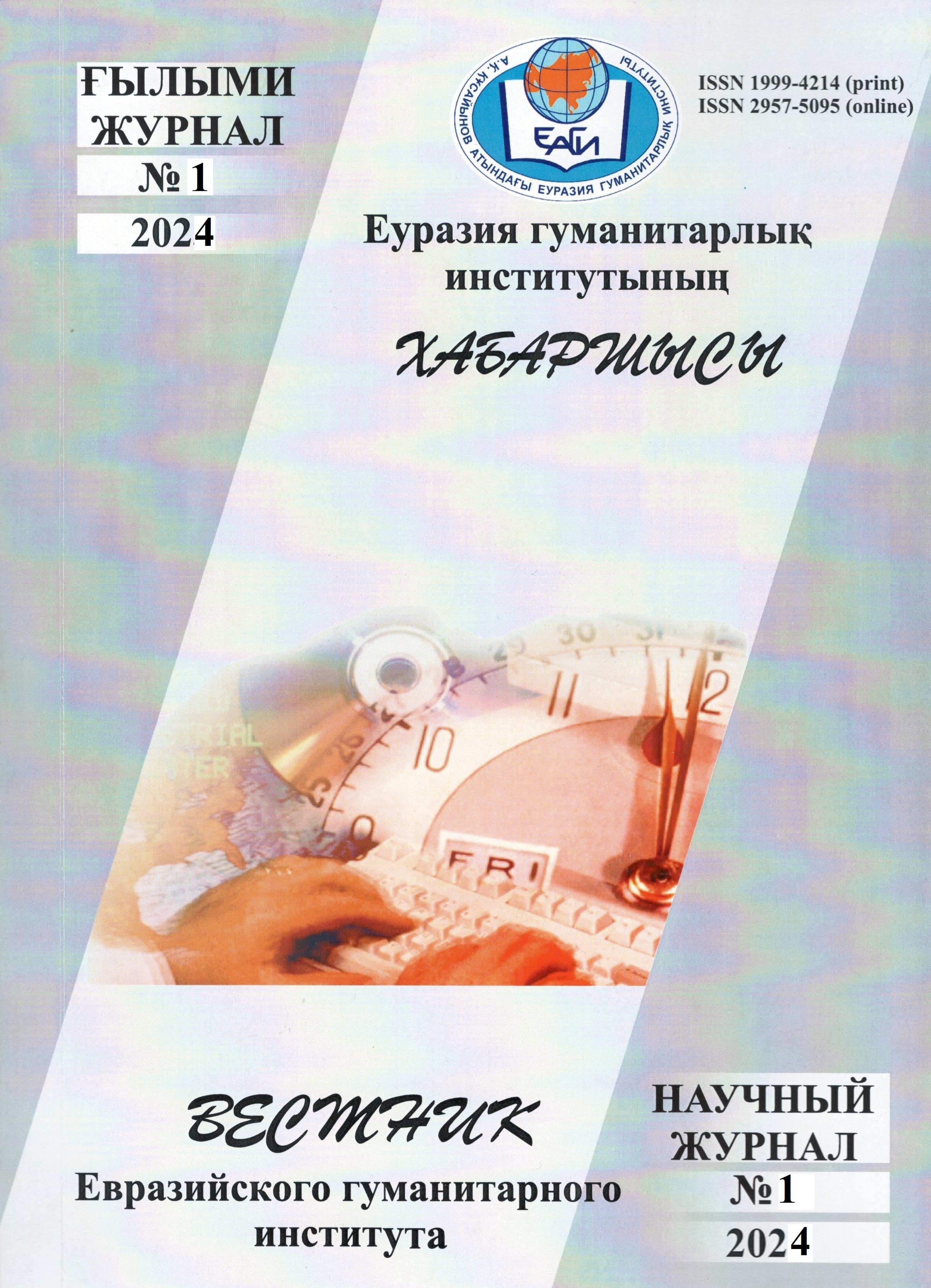The national code NATIONAL CULTURAL CONNOTATION OF REGULAR EXPRESSIONS AND NATIONAL CODE IN KAZAKH AND ENGLISH LANGUAGES
Keywords:
phraseological units, national code, intercultural communication, linguistics, ethnolinguistics.Abstract
Phraseologisms are one of the language units that provide a lot of information about the history, culture, spiritual values, worldview and lifestyle of a certain nation. The phraseological fund of any language includes the culture, mentality, knowledge and traditions of the nation as much as possible. One of the urgent problems in modern linguistics is to determine the characteristic features of each nation based on the information stored in its language. In particular, the study of languages that are not closely related by genealogy, based on the position of new trends in linguistics, opens the way to great opportunities. Systematizing phraseological units in Kazakh and German, Kazakh and Romanian languages and conducting a comparative study of them is becoming the main object of domestic linguistics today.
In the course of the research, methods such as collection, comparison, analysis, summarization, and conclusion were widely used. Phraseological phrases in Kazakh and English languages were analyzed from the semantic, linguisticand cultural aspects. The main features of idiomatic phrases in the Kazakh and English languages were determined, and the history of the origin of English idioms was considered. The results of the research made it possible to determine the connection of phraseological units defining the unique characteristics of each nation with national knowledge and national culture. In the article, it was concluded that regular expressions are the source of the lexical fund of every nation, that they have been formed over centuries and that the people observe the unique worldview of each nation, that it is the language wealth of the nation. In the article, it was determined that regular phrases are sources of ethno- cultural data, a unique linguistic basis for determining the national code.


